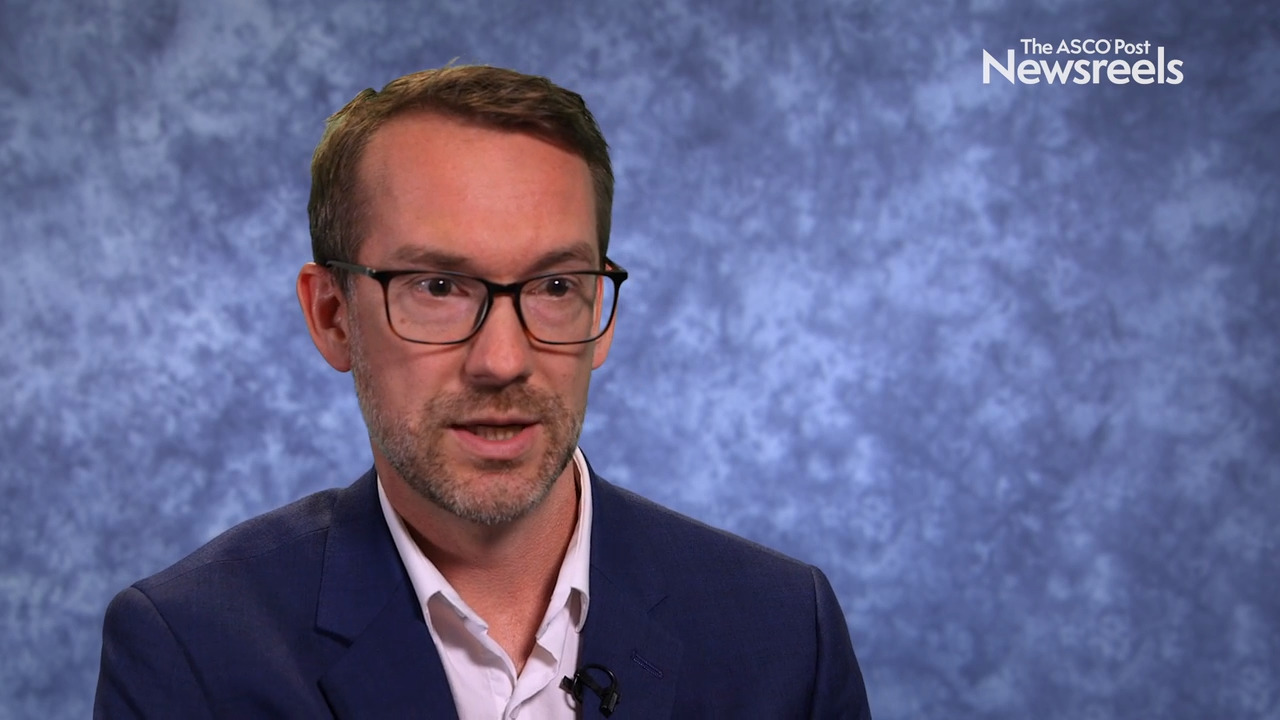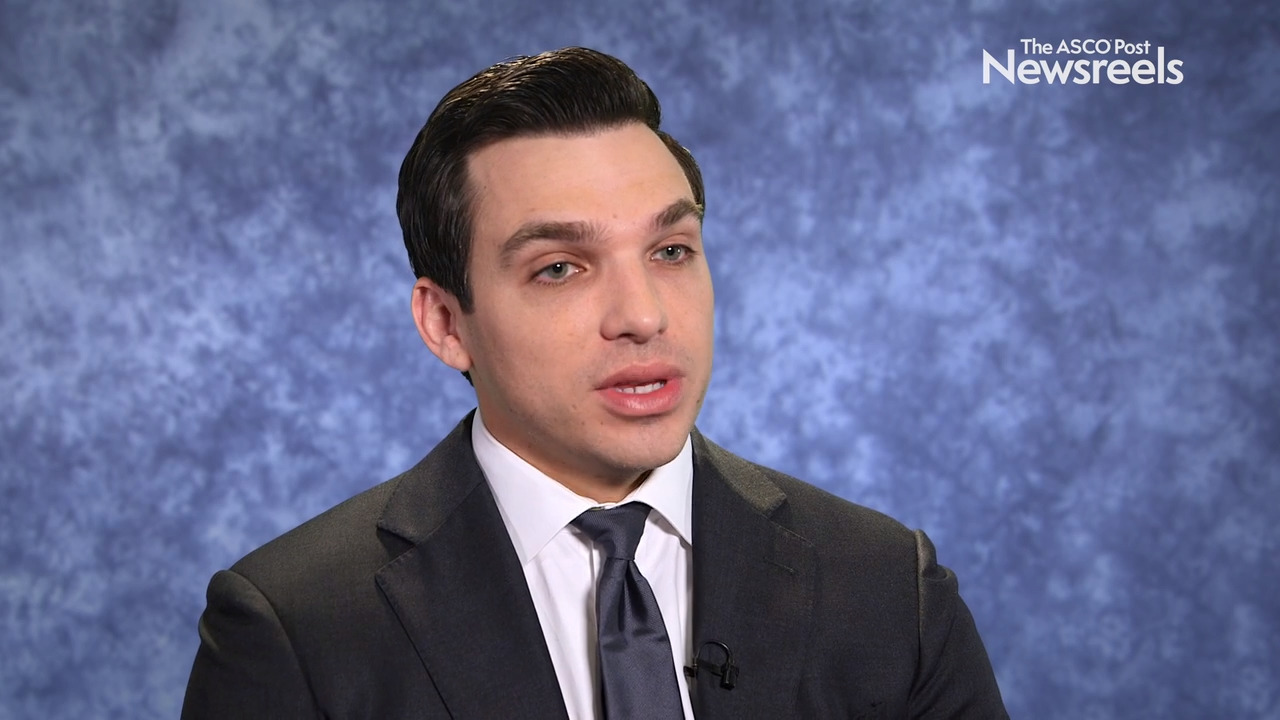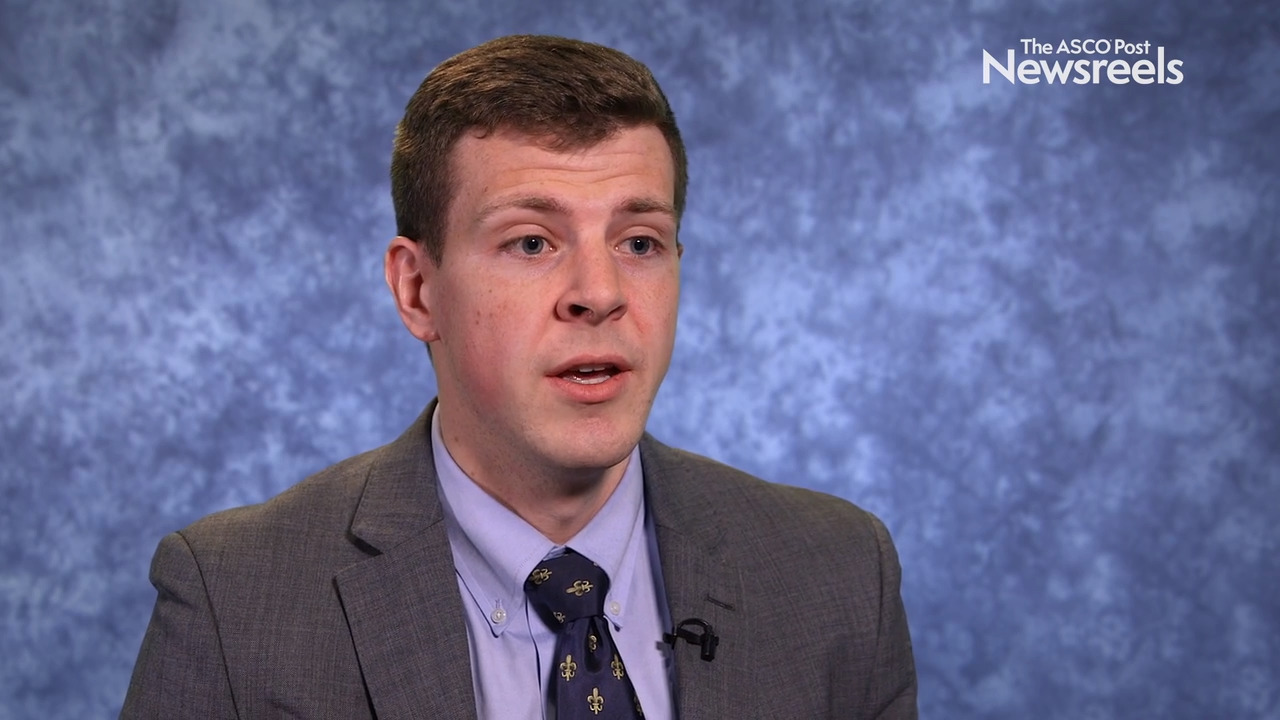Sue Sun Yom, MD, PhD, on Oropharyngeal Cancer: Deintensifying Radiation Therapy Plus Chemotherapy
2019 ASTRO Annual Meeting
Sue Sun Yom, MD, PhD, of the University of California, San Francisco, discusses phase II results showing that swallowing-related quality of life after deintensified chemoradiation therapy may improve in patients with p16-positive, nonsmoking-associated, locoregionally advanced disease (Abstract LBA10).
Robert Olson, MD, of the BC Cancer Centre for the North, discusses a secondary analysis of the SABR-COMET trial, which showed there was a small magnitude decline in quality of life in both arms of the study but no associated detriment with stereotactic ablative radiotherapy (Abstract 148).
Daniel E. Spratt, MD, of the University of Michigan, discusses phase III study findings showing that 2 years of antiandrogen therapy increased cardiac and neurologic toxicities, as well as mortality from causes other than prostate cancer, in men with low levels of prostate-specific antigen after prostatectomy who received adjuvant early salvage radiotherapy (Abstract LBA1).
Michael J. LaRiviere, MD, of the University of Pennsylvania, discusses the safety and efficacy of an alternate radiation-based approach to using cytotoxic chemotherapy alone in preparation for CAR T-cell treatment (Abstract 135).
David Routman, MD, of the Mayo Clinic, discusses his study findings showing that detectable human papillomavirus circulating tumor DNA in the postoperative setting may be linked to disease progression, which may help improve patient selection for treatment intensity (Abstract LBA5).
Justin Barnes, MS, of the St. Louis University School of Medicine, discusses his findings on the risk of suicide, which is higher in patients with cancer than in other adults but can be reduced by health policy interventions, including components of the Affordable Care Act (Abstract LBA9).





